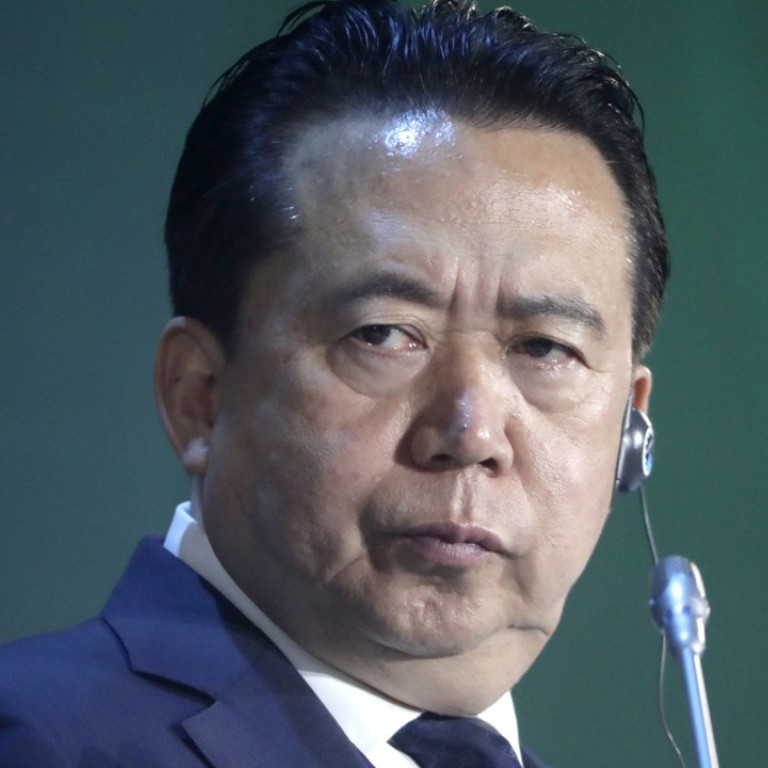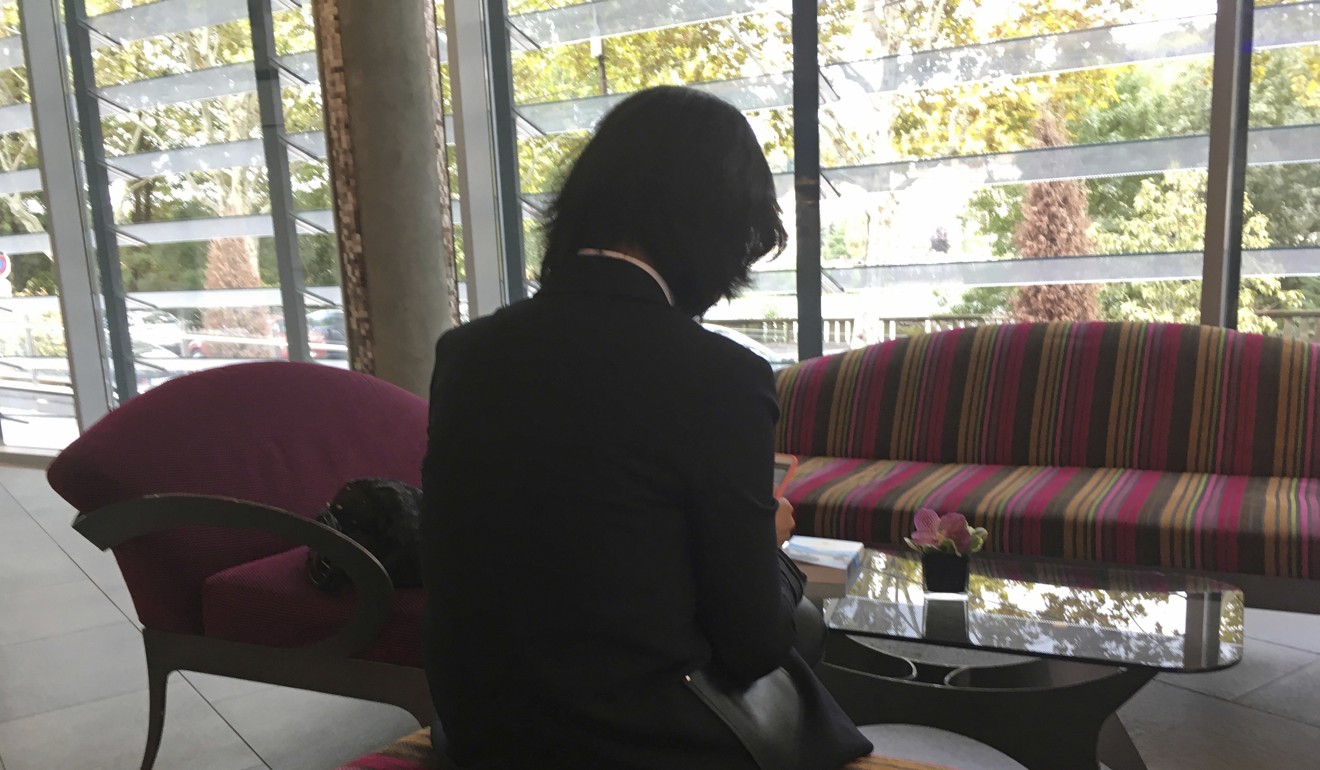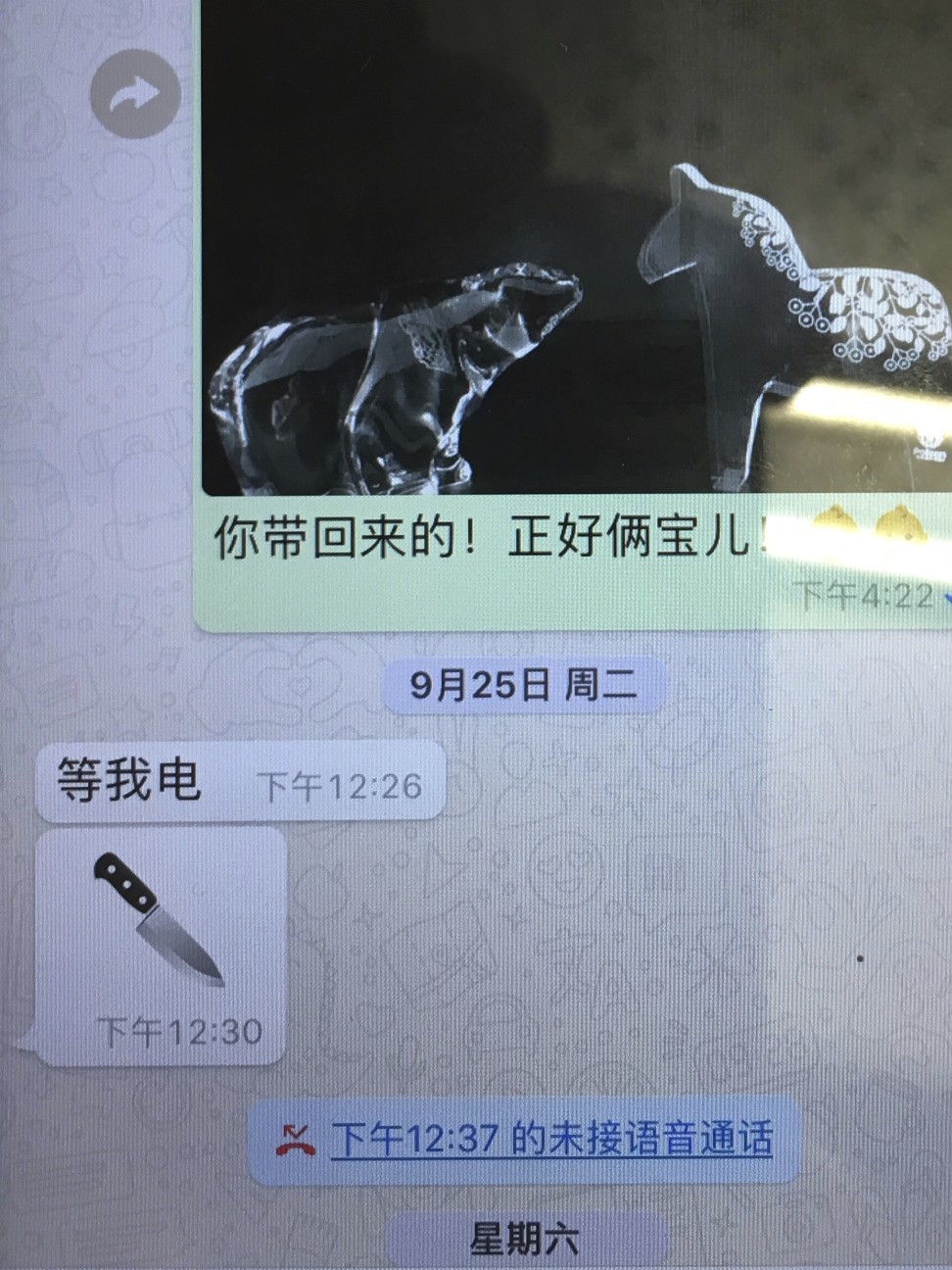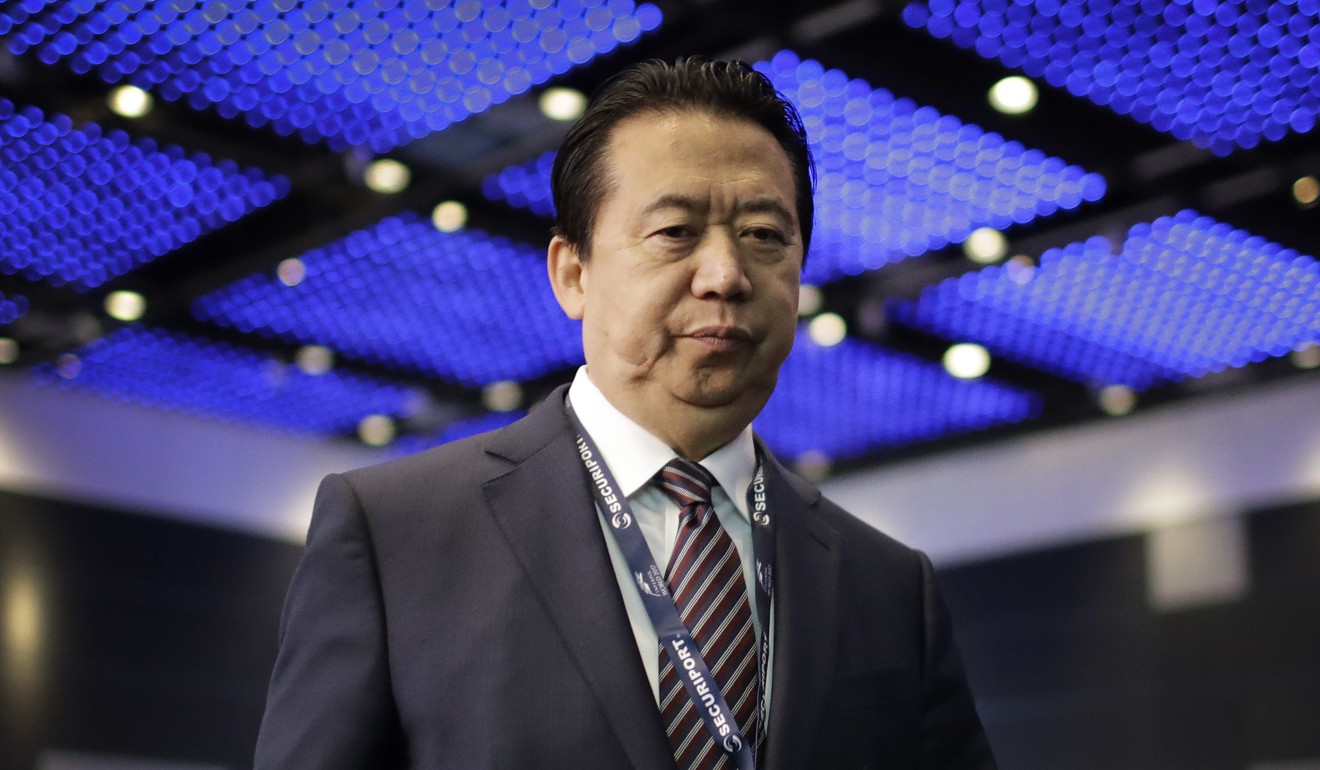
China confirms detention of former Interpol chief Meng Hongwei
At a news conference in France, Meng’s wife says she fears her husband’s life is in danger
The Chinese head of Interpol – who vanished last month after returning to his homeland – was under investigation for possible criminal activity, China announced late on Sunday, as the world police organisation said he had resigned.
The revelations came as Meng Hongwei’s wife voiced concern for his life after receiving a final text message from his phone with a knife emoji.
Meng, 64, was reported missing last week by his wife in Lyon, France, where Interpol is based. Grace Meng said she had not heard from her husband since September 25, according to a statement from the French interior ministry.
While Beijing did not provide any further information about Meng’s detention, analysts said that the fact it was willing to jeopardise its diplomatic relations by snatching a high-profile official in such a way suggested the stakes were high. Meng is also a Chinese deputy public security minister.
The National Supervisory Commission said in an unusually terse statement just before midnight local time that Meng was being investigated for suspected violations of unspecified state law, confirming the Post’s report last week.
Interpol said in a statement on Sunday that Meng had resigned “with immediate effect”.
In Lyon, Grace Meng spoke to the news media just before Beijing issued its statement, pleading with national governments to intervene, saying she feared that her husband’s life was in danger, Agence France-Presse reported.
Meng said the last social media message she received from her husband came on September 25, saying “wait for my call,” followed by a knife emoji.
“This matter belongs to the international community,” Meng told a press conference in English. “I’m not sure what has happened to him.”
A source told the South China Morning Post on Friday that Meng was “taken away” for questioning by discipline authorities “as soon as he landed in China”.
But the midnight statement by the NSC did not mention if Meng was suspected of breaking any Communist Party rules, a form of words the anti-corruption agency usually adopts to refer to its investigations.

As of Sunday afternoon, the final day of the National Day holiday, the Ministry of Public Security had yet to comment on the issue, though its website showed that a top level Communist Party committee meeting had been held on September 30, the day before the week-long break got under way.
During the meeting, State Councillor and Public Security Minister Zhao Kezhi relayed details of talks held a day earlier involving President Xi Jinping’s chief of staff Ding Xuexiang. Ding was said to have urged officials within party headquarters and the central government to remain vigilant to the threat of corruption.
China accuses ex-Interpol chief of taking bribes, targets associates
Interpol on Saturday issued a formal request to Beijing for information on the whereabouts of Meng, while French police said they were running their own investigation into his disappearance.
Meng’s wife and children have been placed under protective custody after receiving threats, the French interior ministry said on Saturday.

Analysts said the way in which Meng disappeared would damage not only China’s efforts to build cooperative agreements with other countries on legal and law enforcement issues but also its chances of having officials appointed to senior positions within global institutions.
Nevertheless, it would have been well aware of those risks before acting in the way it did, said Beijing-based political commentator Zhang Lifan.
“I’m pretty sure they would have expected an extraordinary response from the international community before taking such a decision,” he said.
“I guess something urgent must have happened. That’s why [the authorities] choose to take such immediate action, at the risk of losing face on the international stage.
“If what Meng is involved in is nothing more than an ordinary corruption case, there would have been no need for the authorities to handle it in such a manner.”
Where’s Meng? Interpol presses China on president’s whereabouts
Steve Tsang, director of SOAS China Institute in London, said that given Meng’s seniority, any decision to detain him must have come from the highest levels of the Chinese government.
“Chinese foreign policy is required first and foremost to serve the interests of the Communist Party. Thus, while the image of China and advancing China’s capacity to take on leading offices in international organisations matter to the Chinese government, they are secondary to party considerations,” he said.
“This will be deeply embarrassing to China and it may well have to pay a price for its nominee for the presidency of Interpol to be detained for undefined crimes in China, [but] this is of secondary consideration to the party leader if he has a reason to want to take Meng down. We shall see what happens next.
“It is more likely that his problems would have been considered serious and he would be a ‘guest of the Chinese government’ for quite a while.”

Meng had overseen work in narcotics control, counterterrorism, border control, immigration and international cooperation, and also served as director general of China’s coastguard.
Despite his vice-minister status, he lost his position on the public security ministry’s party committee in April, a move that drew speculation over his political future. He was the only leading official within the ministry not to have a seat on the committee.
Interpol said that Kim Jong-yang of South Korea would become its acting president.
Additional reporting by AFP



